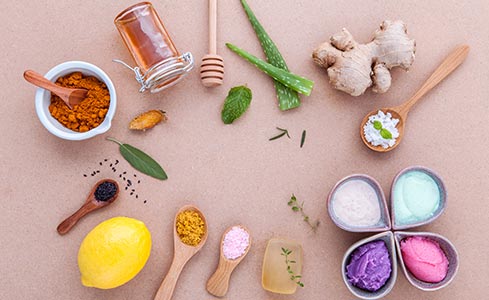
It is not unusual to have a pimple or two as a teenager. They come and go as hormonal imbalance finds stability in the body. But, even after leaving the teenage years miles back, if you still have large, red, and painful breakouts deep in your facial skin or anywhere else in the body, it may be cystic acne.
A more serious form of acne, cystic acne happens when cysts develop deep underneath the skin due to a combination of bacteria, oil, dry skin cells, etc., that get trapped in the pores.
If you too are facing one or know someone who is suffering from this painful form of acne, then these are the most important 4 things that you must know about cystic acne:
1. Pimple takes place when the skin pores get clogged with acne causing bacteria, oil (sebum), dirt, dead skin cells, etc. If not treated on time and in the right manner, it may penetrate deep into the skin, causing redness and swelling in a tender bump (cystic acne) that is full of pus.
2. You are more prone to cystic acne during your teenage or early 20’s. But, given the erratic lifestyles we have, it is not uncommon to face it even in later years. Acne and later on cystic acne mostly affect the face, chest, back, or the back side of the upper arms. The infection can also spread from one part to another.
3. Though not concrete, but studies indicate that the androgen hormone causes the cystic acne. Other than this, hormonal changes in women like menstrual cycles, pregnancy, polycystic ovarian syndrome, menopause, etc., too can aggravate the situation.
4. Over the years, many new treatments for acne have been researched on and developed, giving a patient a variety of options to choose from. From over the counter topical acne gel to cosmetic procedures like chemical peels, dermabrasion, laser resurfacing, etc., there are many cures to acne. Though it is better to stick to milder things like acne gel for results that do not have a side effect.
Diet plays an important role to get rid of hormonal acne. Same applies to cystic acne too. Along with, keep your skin clean with acne soap, use the right products that suit your skin type, and use an acne gel on a regular basis to control and prevent acne.
Disclaimer This blog solely intended for the educational/informational/awareness purposes and is not a substitute for any professional medical advice, diagnosis or treatment. Please consult your doctor/healthcare professional before acting on the information provided on the blog. Reliance on any or all information provided in the blog, is solely at your own risk and responsibility. Mankind Pharma Limited shall not be held liable, in any circumstance whatsoever.

Acne is a skin condition that occurs when your hair follicles become plugged with oil and dead skin cells.

it is absolutely imperative to know its type. Acne can be inflammatory or non-inflammatory which further has different lesions, as mentioned below.

Acne starts occurring in teenagers due to an increase in the level of Androgen production. Androgen is a hormone which signals the body to produce more sebum, the oil produced by the sebaceous glands.

Acne is a skin condition that occurs when your hair follicles become plugged with oil and dead skin cells. It often causes whiteheads, blackheads or pimples, and usually appears on the face, forehead, chest, upper back and shoulders. Acne is most common among teenagers, though it affects people of all ages.

Debunk acne myths by following a proper skincare regimen. Taking good care of your skin can help you achieve a glowing and acne-free skin.